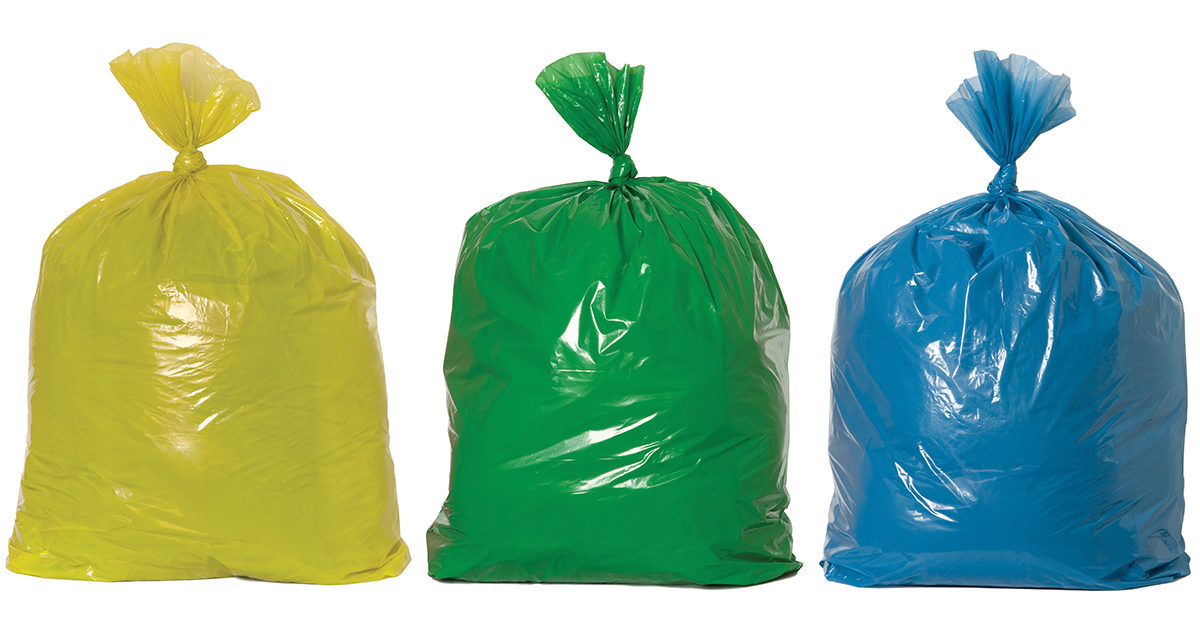Ever since the U.S. Green Building Council’s (USGBC) introduction of LEED v4 in 2016, I have been disappointed that v4 did not address some of my concerns about plastic liners. In my view, plastic liners used in facilities should be made of recycled content; be recyclable; and come in a variety of sizes so custodial staff use only right-sized bags, helping to reduce waste.
However, while weighing the issue, the USGBC heard from manufacturers and end-user customers who said recycled plastic liners were not as dependable as traditional liners and were more likely to tear. In other words, the technology to manufacture durable and recyclable liners made from recycled resin was just not there yet.
Nearly 300 million tons of plastics were produced in 2013, according to the Worldwatch Institute; a great deal of this plastic was used for products such as trash can liners. And while trash can liners help to keep our facilities clean, how we dispose of them can have grave consequences.
A Look at the Consequences
According to an article, “Plastic Bag Pollution,” by Sharon Jacobsen with the LA County Department of Public Works, plastic bags that end up in landfills or in waterways can have detrimental impacts on the environment. For example:
- Plastic liners can take as long as 300 years to fully disintegrate.
- As they break down, plastic liners release toxic particulates that contaminate soil and waterways and enter the food chain.
- In oceans, they can endanger, smother, or choke sea life.
- Environmentally-friendly plastic bags are still petroleum-based and can take three years to break down, releasing methane, a greenhouse gas, as they decay.
Reducing Impact
The cleaning industry needs to educate building users on ways to help reduce the unnecessary use of plastic liners and replace those that are necessary with new plastic liner technologies that are more environmentally preferable.
Some major sustainability-focused, corporate campuses have implemented sustainable can liner programs, installing different types of containers for different types of waste. In these programs, plastic liners are only used in containers meant for wet or potentially-contaminated waste. All other waste is put into containers that have no plastic liners.
In most settings, specifically in office locations, the overwhelming amount of waste generated is dry trash, such as paper. Sustainable can liner programs cater to this type of trash. Custodians can simply dump these dry containers without taking time away from important cleaning and disinfecting tasks to wash the waste containers.
In addition to eliminating unnecessary plastic liners, sustainable can liner programs ensure the bags are the right size for the containers and the appropriate thickness for the collected materials. This helps to eliminate excessive plastic, minimizing environmental impacts and reducing overall cost.
Promoting Sustainable Trash Practices
The results of sustainable can liner programs have been so encouraging that many corporate campuses are now taking steps to expand the program.
While there may be different perspectives as to why these programs are proving successful, I believe their success is due to people, especially younger people, who want to promote sustainability. Just as younger people seem to have been born computer literate, it appears many have also been raised in a culture that values sustainability. In addition, using resources more efficiently, reducing impacts on the environment, and saving money are values that many people share.



